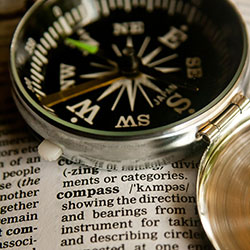 We continue our run-down of some the terms used in the procurement world. Think of it as a procurement jargon buster, helping you to navigate through the vast range of concepts, words and phrases that we all use. You can find the previous selections here – part one and part two.
We continue our run-down of some the terms used in the procurement world. Think of it as a procurement jargon buster, helping you to navigate through the vast range of concepts, words and phrases that we all use. You can find the previous selections here – part one and part two.
Daily rates
A way in which tenderers may quote for a project based on man days rather than job value.
Dayworks
As ‘Daily Rates‘, but quoted in hours or part-days.
DBFM (Design, Build, Finance and Manage)
A contract (often privately-funded) where the service provider designs, builds, finances and manages relevant to a service for an agreed period.
Debriefing
Feedback sessions with unsuccessful tenderers at the end of a procurement process. Aimed at communicating honestly and openly to help tenderers for future tender exercises – so potentially in the buyer’s long-term interests as well.
Default
A contractor breach of contract conditions.
Deliverables
A project’s quantifiable outputs to be generated by contracted parties.
Direct and Indirect costs
The distinction between direct and indirect costs lies in whether the purchase is seen as ‘directly’ relating to (the production of) finished goods. Manufacturing costs such as materials and labour are therefore classified as ‘direct’, whereas indirect costs may relate to rates paid, management salaries or insurance.
Dynamic Purchasing Systems
An electronic system for purchasing commonly-sourced (and often low-value) goods from approved suppliers. Reduces the requirement for repeat tender processes and associated administration.
E&OE (Errors and Omissions Excepted)
In complex or fast-moving markets, the contractor may include this disclaimer in an attempt to avoid liability for mistakes or sub-contract value fluctuation. Buyers should not accept these disclaimers unless absolutely justified.
EC Procurement Threshold
This governs the value (exact value dependent upon contract type) at which contracts must adhere to more detailed rules, including the requirement to advertise the contract in the OJEU – link to ‘European Union’s Official Journal’ for now.
Economic and financial standing
The contracting authority can use this assessment to gauge whether the supplier is of the necessary size and financial status to deliver substantial projects or handle associated risks.
Economic Operator
Also known as a contractor or supplier, a capture-all term for the organisation or individual contracted to deliver works.
E-procurement (Electronic procurement)
The process of purchase/sale of supplies, services or works as conducted online or via networking systems.
Equal treatment
The avoidance of bias (based on size, nationality etc.) in the decision of whom is awarded a contract.
Equalities Impacts Needs Assessment (EINA)
A method of evaluating the potential effect (on a wide range of different people) of a function or policy’s implementation.
Estimate
A quoted cost for the provision of goods, services or works based on information available. Buyers should look to obtain a firm or fixed price before placing orders.
EU rules
Public Procurement in the EU is governed by a number of Directives and Regulations. These aim to promote value for money as a result of open competition.
European Union’s Official Journal (or OJEU)
The OJEU’s ‘Public Procurement’ supplement is where all tenders from the public sector which are valued above a certain financial threshold (see EC Procurement Threshold) determined by EU legislation, are published.
Evaluation
The process necessary to assess and compare tender submissions against agreed criteria before awarding a contract.
Express guarantee (or Express warranty)
An agreement between buyer and supplier where the supplier agrees to repair or replace defective goods within a stated time period.
Ex-works
A type of contract where the product ownership and liability changes (from supplier to buyer) at supplier premises. Goods are collected by the buyer or a representative.
Nextenders aims to make procurement straightforward and accessible, without diminishing its power to drive change and efficiency in organisations.
For more information about our solutions, visit the products section or contact us with to arrange a demo.

